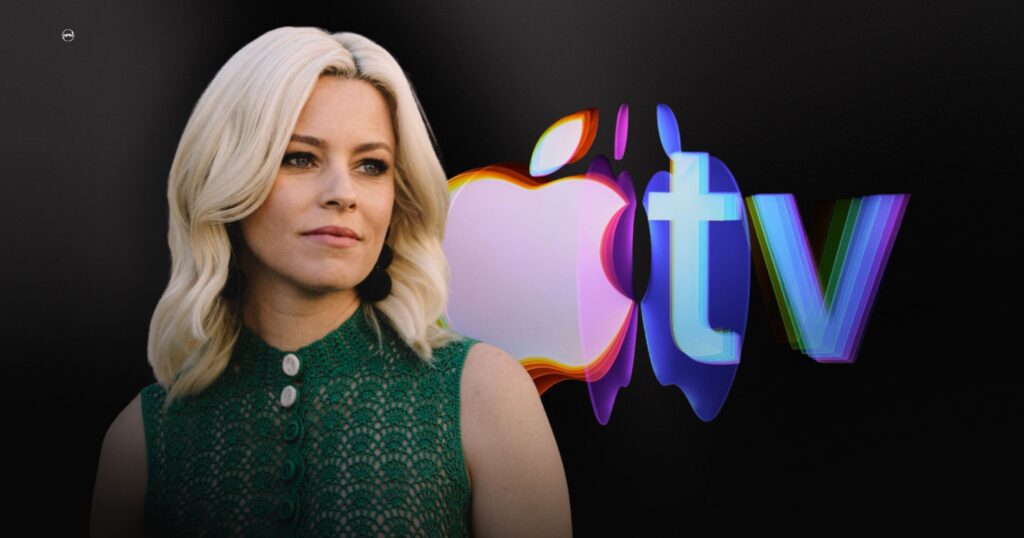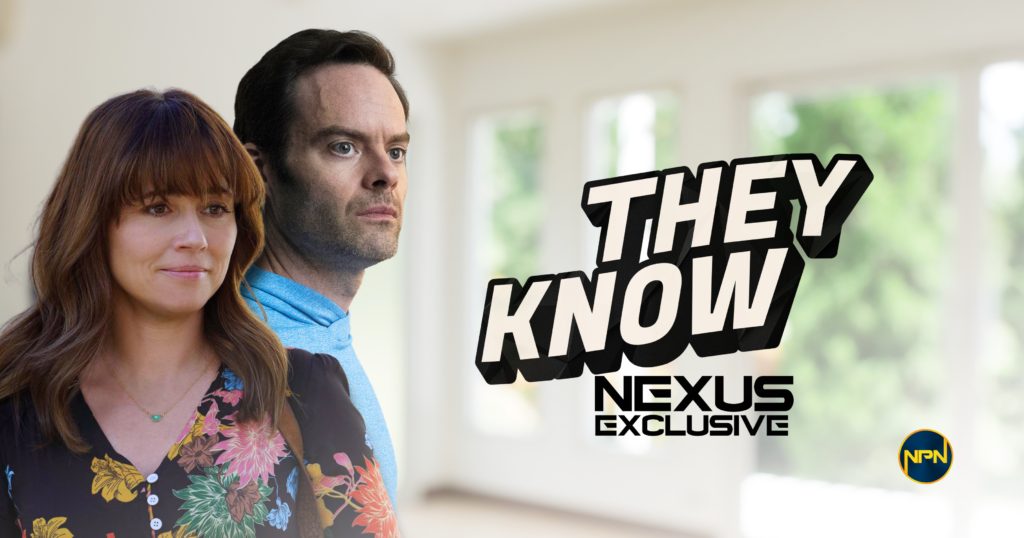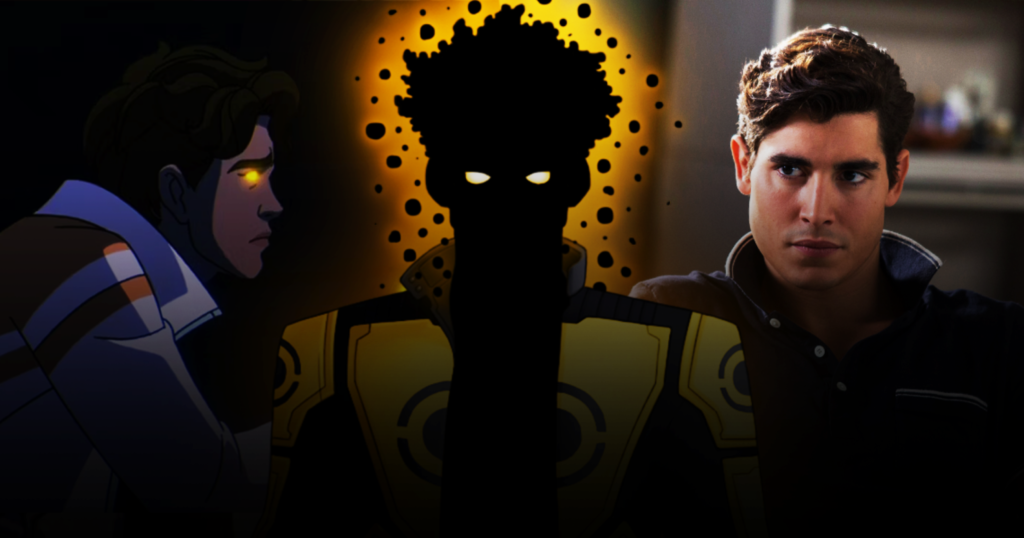
Enter Sunspot
The inclusion of Sunspot in Marvel Animation’s X-Men ‘97 has drawn up a lot of buzz around the powerful solar-based mutant that is Roberto Da Costa. Despite being a longtime mutant who has gone on to lead the Avengers, his history of depictions has been full of inconsistencies. Let’s delve into the historic and continual whitewashing of Marvel’s first Black male mutant.
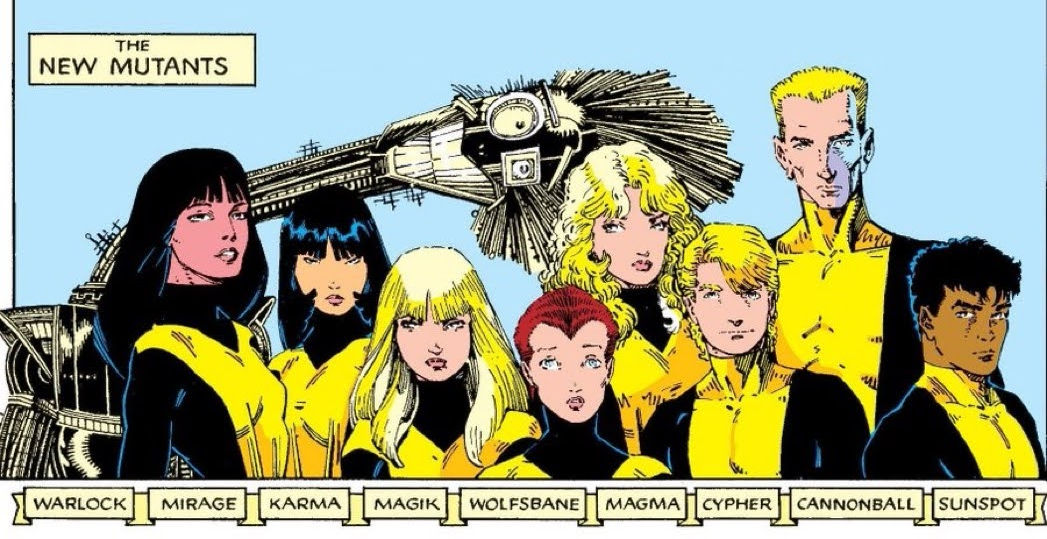
Roberto Da Costa is an Afro-Brazilian from a wealthy family who joins the New Mutants after being saved from anti-mutant mercenaries. His mutation allows him to absorb solar radiation, turning him all black as he converts it into super strength, energy blasts, and flight. He’s a suave ladies’ man, best friends with Cannonball, infectiously cool when he wants to be, but melodramatic when he needs to be. What’s not to love?
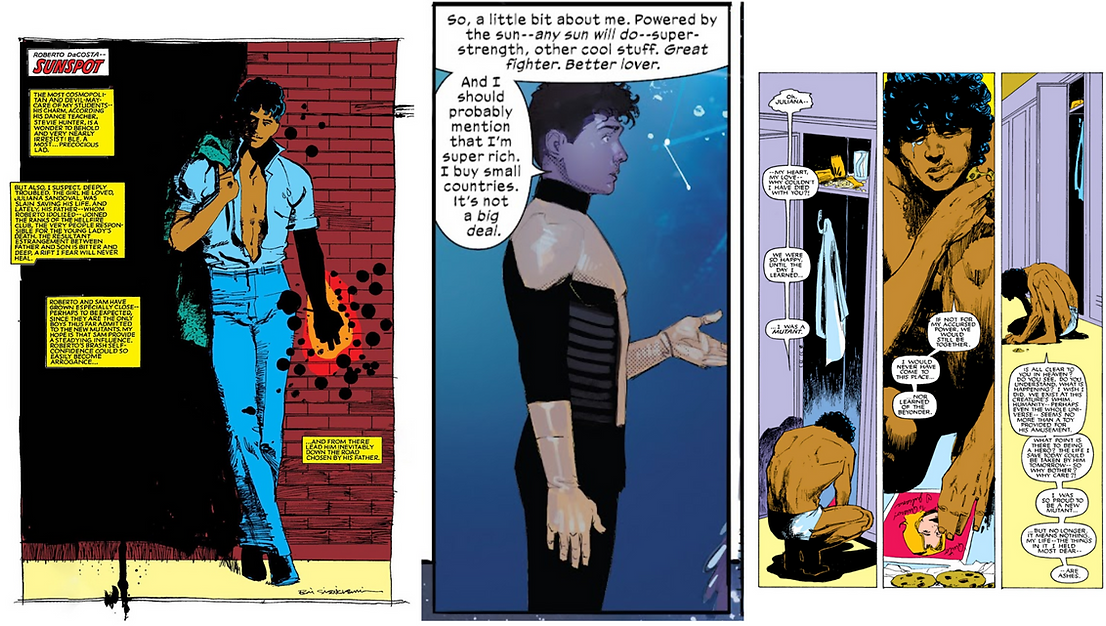
Since graduating from New Mutant status, Roberto has gone on to join Cable’s X-Force, was a part of the Hellfire Club (after his father), was an Avenger under Jonathan Hickman, owned his business empire, funded X-Corp, and most recently just ended his tenure on the mutant space nation of Arakko, working alongside the mutant goddess, Storm, in Al Ewing’s X-Men: Red.
Oh! He’s also been in a couple of X-Men movies when Fox was doing those. He first appeared in X-Men: Days of Future Past (2014) in a very minor role, played by the late Adan Canto. In 2020, he appeared in the critically panned The New Mutants, played by Henry Zaga.
Should I address the elephant in the room?
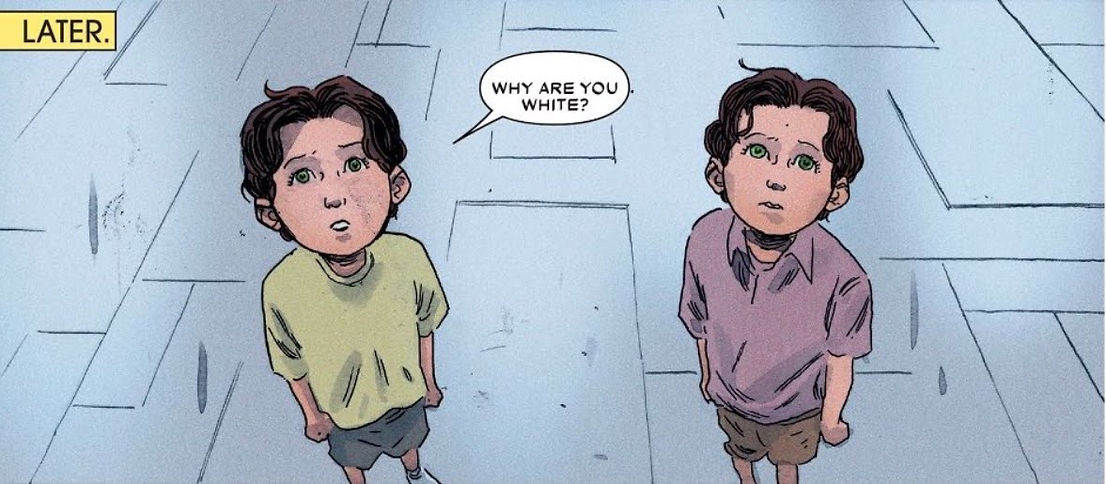
Unpacking Sunspot’s Racist History
How the @#$% does Roberto Da Costa go from a dark-skinned boy with a round nose and curly hair, to very light-skinned, straight-haired, and narrow-nosed?
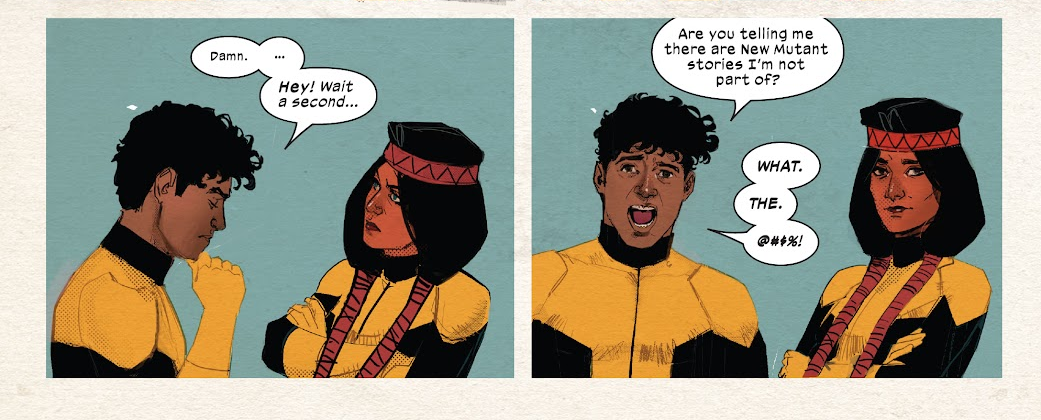
The erasure of Sunspot’s Blackness can be traced to the tail end of the 90’s. In the limited series, New Mutants: Truth or Death (1997), he’s drawn a couple of shades lighter than his usual dark complexion. It gets even worse in Volume 2 of New Mutants (2009) when he’s genuinely just drawn white—so white you wonder if it’s the same character, and what research (or rather the lack thereof) the artists did before depicting him. This would continue for many years.

Since then, Sunspot’s depiction within comics has been getting… better—if not perfect just yet. This is in part due to fan backlash, calling out whenever Sunspot doesn’t match his original intended look. His dark skin still comes and goes though, and notable Afro features (curly hair, fuller nose) are toned down, if not missing entirely.
The highs!
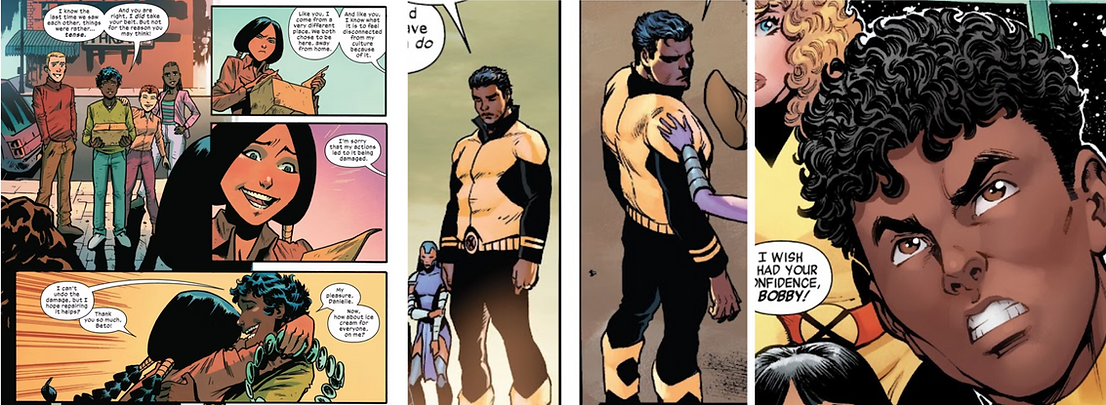
And the lows…

The whitewashing of Sunspot predates Fox’s depictions of him. But why does this continue to happen? Why isn’t the diligent research and care had when handling this Black character?
The Bigger Picture
To arrive at an answer, we should first revisit what two things spurred me to write this article.
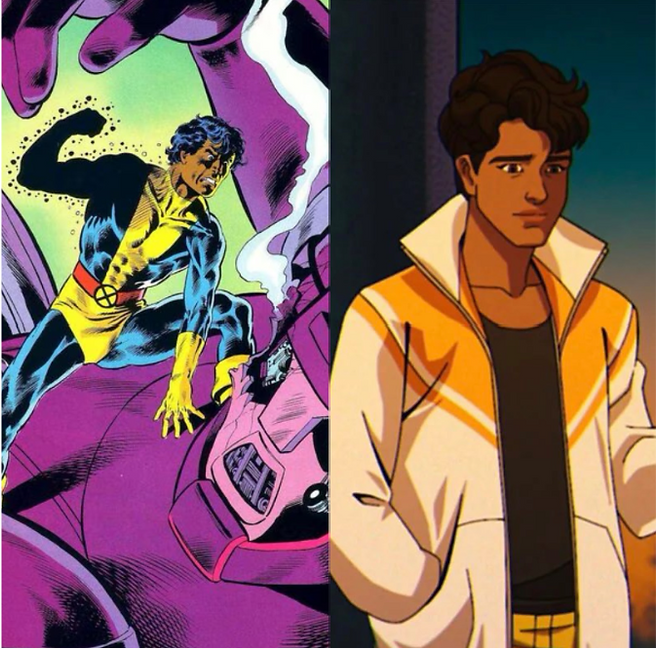
First, Sunspot’s inclusion in Marvel Animation’s X-Men ‘97, a show which has been a welcome surprise (I’m not too big on the ’90s, and let’s just blame Rob Liefeld… More thoughts on the show later). However despite my enjoyment, whenever Roberto Da Costa is on my screen, I squint my eyes and frown—and I’m not just talking about the jacket that comic Roberto wouldn’t be caught dead in. Again, his Afro features have been diminished and his dark skin has been lightened so its ambiguously brown.
Last year, when it was reported that he would be voiced by Gui Agustini, a white Brazilian man, fans quickly began to vocalize their justified frustration at Sunspot being whitewashed again. The discussion about diversity in front of and behind the screen led to former X-Men ‘97 head writer and executive producer Beau DeMayo leaving Twitter after back and forth with fans.
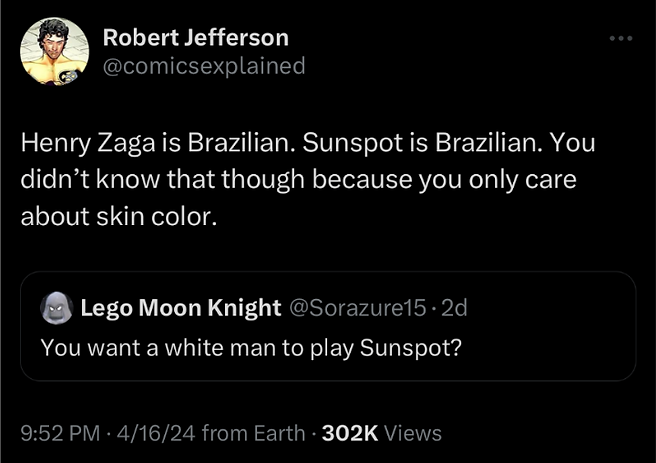
Also recently, Henry Zaga, who played Sunspot in the weirdly racist and better-to-have-been-forgotten The New Mutants (2020), recently stated he would like to return as Roberto Da Costa. Comics Explained, a Youtuber, proclaimed his anticipation for this to happen. When others began to note how Zaga isn’t Black like Sunspot is in the comic, he implied that Zaga being Brazilian was enough.
Look, I’m not gonna harp on about this guy—not even how weird, corny, and tacky it is for a self-proclaimed “comic historian” to change his profile picture to a panel of a Black character being actively whitewashed. Instead, I want to connect this attitude to comments made by the director of that movie, Josh Boone, in an interview when he was asked about the criticism his whitewashed casting rightfully obtained.
“I didn’t care so much about the racism I’ve heard about in Brazil, about light-skinned versus dark-skinned. To me, it was I wanted to represent Brazil positively and I wanted to find somebody who seems like he could look like a guy who’s had the silver spoon in his mouth, who has like a really rich dad, and [Henry] just exemplified all these things.” — Josh Boone
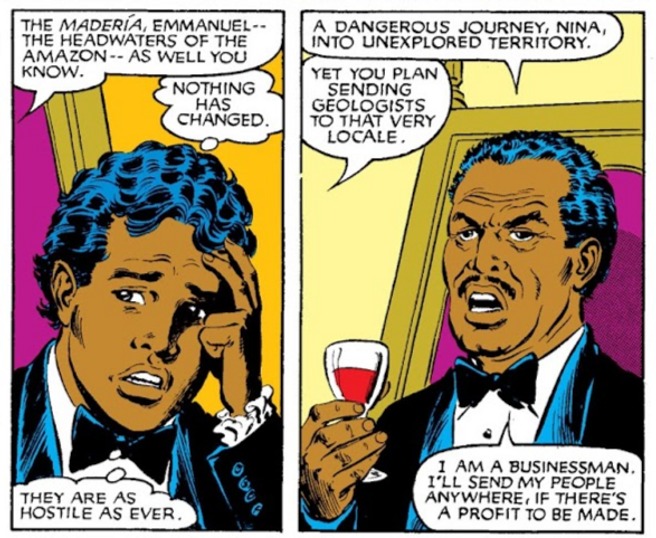
Outside Africa, Brazil has the highest percentage of Black people as a country. Are we to sit here and believe that one: a dark-skinned Brazilian actor couldn’t have been found, and two: that Sunspot’s Blackness is that readily disposable? Zero Black and dark-skinned Brazilian actors could (in his words) “represent Brazil in a positive way” and “look like a guy who’s had the silver spoon in his mouth”? Do we see the racial script being blatantly poured before us?
The point I want to arrive at is that the erasure of Sunspot’s blackness isn’t something that just happened and continues to happen in a void. It’s a deliberate choice stemming from systemic anti-Blackness that bleeds into everything. It’s the choice to see the label “Brazilian” and ignore the “Afro” in front of it. It’s the choice to see Blackness as not as important to one’s identity, allowing it to be ignored and sacrificed at the artist’s discretion.
And when it comes to Sunspot’s identity, the erasure of his Blackness is especially insulting when you consider his mutant powers emerged when he was the victim of an anti-Black, racist attack. An origin that X-Men ’97 has completely omitted (along with his dark-skinned father…), instead replacing it with a coming out allegory (as seen in episode 7). Although, I do suppose it’s uncomfortable to incorporate a Black man’s pain caused by racism when there’s a white voice actor behind the scenes.
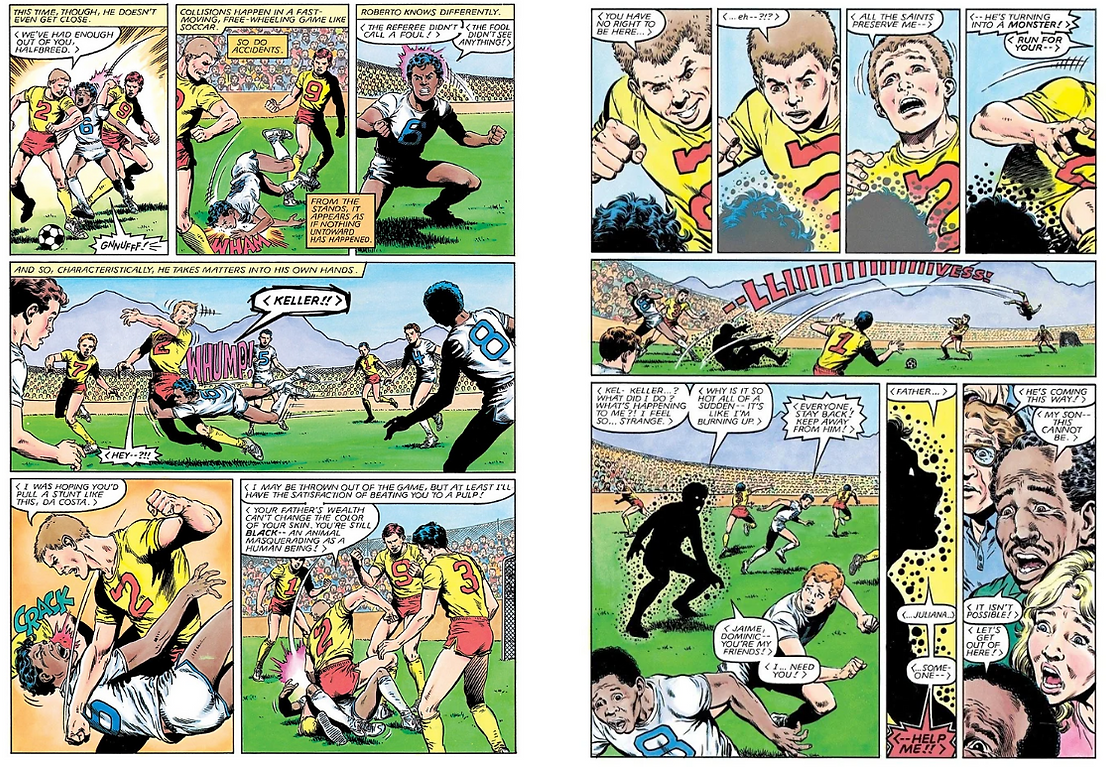
But does Sunspot’s origin even need to be brought up to justify his Blackness? Why do we have to make the case for why a Black character—within a franchise that has few Black characters, within an industry that is the same—should stay Black? Why is this a point that needs to be had and shared over and over? Why are we giving a platform or time to anybody who fixes their lips to say otherwise?
To truly stage the conversation surrounding the erasure of Sunspot’s blackness requires prerequisites that a lot of people simply lack. It requires the understanding that anti-Blackness is pervading and prevalent. It requires the understanding that anti-Blackness seeps into all of our choices as a collective society, conscious and subconscious. It requires the understanding that perhaps we shouldn’t be entirely surprised that non-Black creators don’t have the facilities to properly maneuver while being aware of it, if not around it in some fashion.
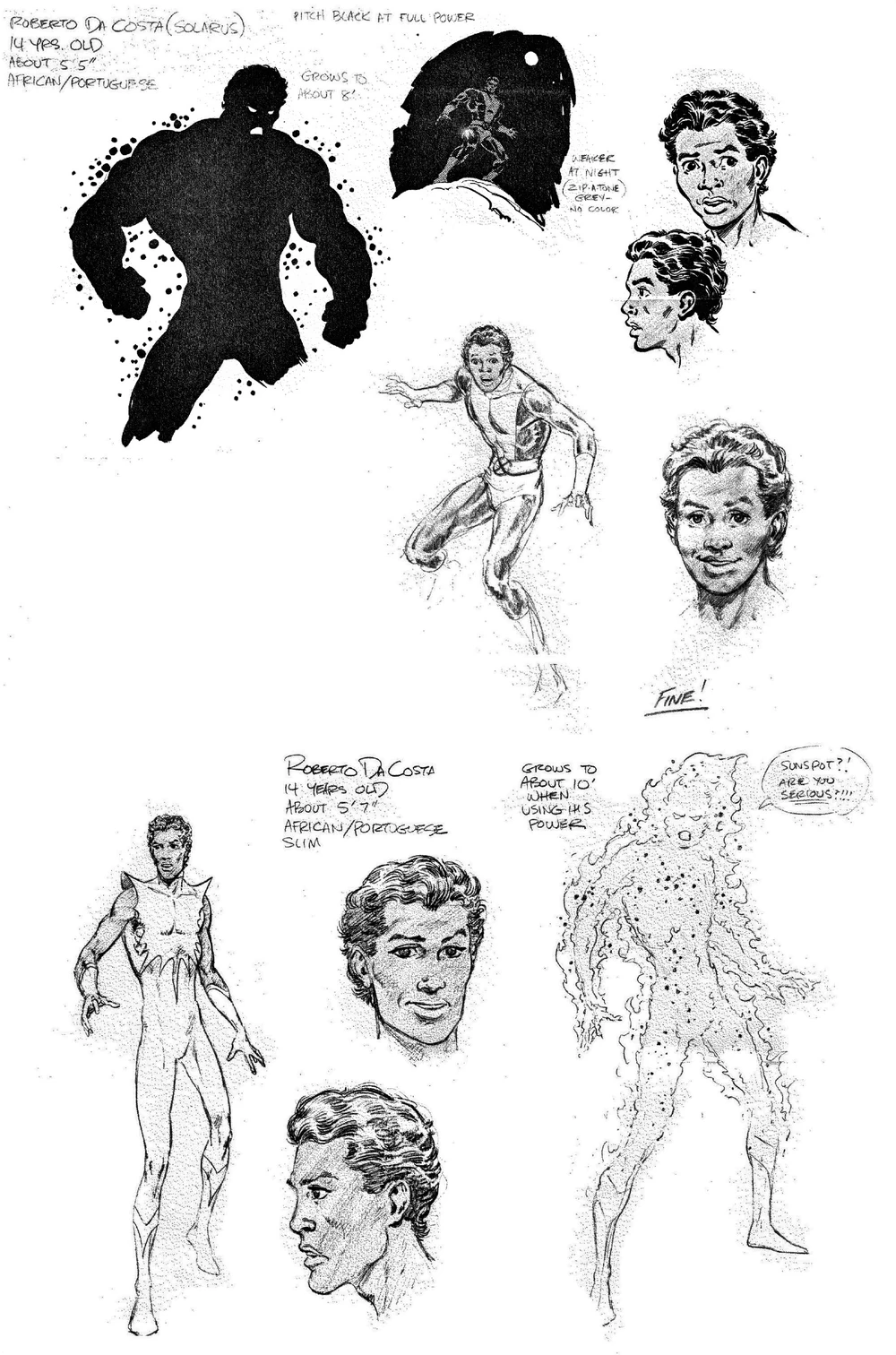
This entire topic has brought to mind a Toni Morrison quote:
“The function, the very serious function of racism is a distraction. It keeps you from doing your work. It keeps you explaining, over and over again, your reason for being. Somebody says you have no language and you spend twenty years proving that you do. Somebody says your head isn’t shaped properly so you have scientists working on the fact that it is. Somebody says you have no art, so you dredge that up. Somebody says you have no kingdoms, so you dredge that up. None of this is necessary. There will always be one more thing.”
The function of saying otherwise, of playing devil’s advocate, of saying “but muh, the comics” is to preoccupy your time. It’s to distract. There are better, more worthwhile, less mind-numbing conversations to be had. The idea that arguing a character’s Blackness is something that can be done in your free time is utter lunacy. These people should be blocked, ignored, and forgotten, just like everything else that refuses to get with the times.
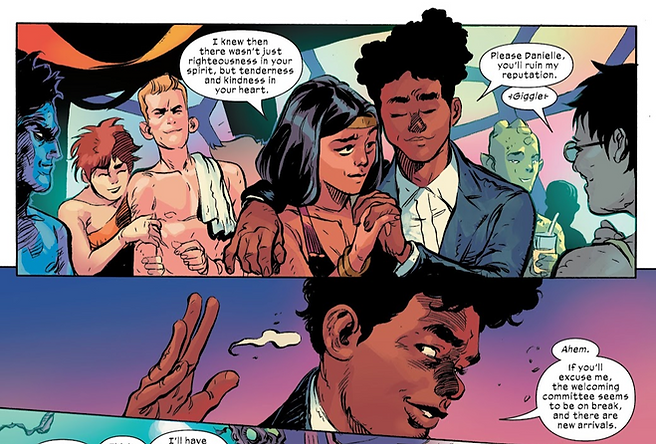
As a Black fan of Sunspot, I am relieved to be a part of a fanbase that continuously calls out such a racist practice, yet also saddened at the same time that this collective backlash has become so commonplace. It’s almost framed to appear that we shouldn’t be surprised that an Afro-Latino has his Afro aspect diminished and/or erased again, and again… and again.
This article isn’t here to convince you at length why (his) representation matters. The audience that I write to, and frankly the only audience that matters, knows why it’s important for people to see people who look like them on the screen. This isn’t to say a character’s reliability is only skin deep. However, there’s a quality in seeing a character look like you—I mean really look like you—in a society that continually seeks to replace and diminish your identity and has done so for centuries. Especially when said identities are so intertwined with what makes those characters who they are, and why we love them.
A Final Note
As the X-Men continues to thrust forward as a Civil Rights allegory, it is disheartening at best and antithetical at worst, to see this franchise continue to not handle its characters of color correctly—as the whitewashing of Sunspot truly is only the tip of a much larger iceberg.
I suppose moving forward I hope we can get to the point where fans don’t have to relentlessly ask to keep Black characters Black, and dark-skinned characters, dark-skinned—because this issue goes beyond just Roberto Da Costa. Even fellow mutant, Storm, has had printed moments where she isn’t depicted how she should be. I hope that an industry that “prides” itself on diversity and pats itself on the back once a year with one-shots (much more diverse than their standard ongoings, mind you), could do the active work and make sure these “slip-ups” don’t even see print in the first place.
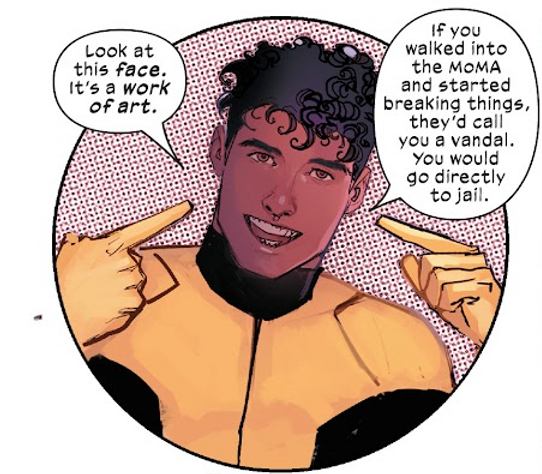
Until then, I suppose it falls upon the fans to do that work: when we see good depictions that choose to represent Sunspot as he is—as he should be—dark-skinned with Afro features, it should be noticed and praised; when we see depictions that choose to represent him otherwise and treat the visually Black aspect of him as something that can be disregarded or sacrificed, that shouldn’t go unnoticed either.
P.S. A Sunspot and Spider-Man (Miles Morales) team-up is way overdue.

